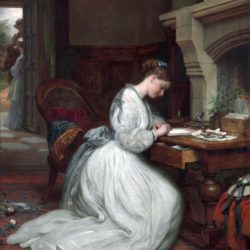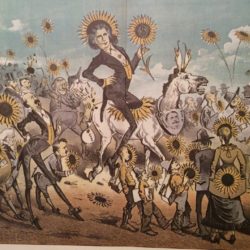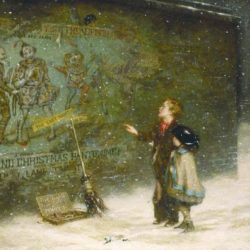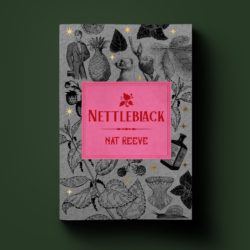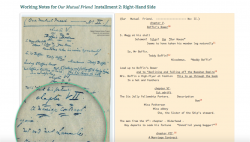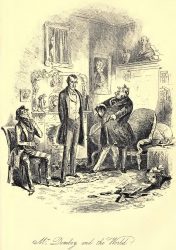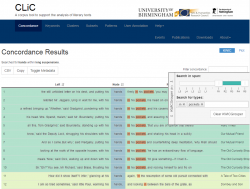Theadora Jean is a Gothic scholar and writer. Her novella The Westenra House, a 21st century adaptation of Dracula stripped of the supernatural, based on found text and social media, formed part of her critical-creative PhD from Royal Holloway. She writes melancholy, southeast-London Gothic fiction and non-fiction under the name T.S.J. Harling, her print chapbook, … Continue reading “‘Nothing but a Mass of Typewriting’: Dracula as Palimpsest”
Tag: KWICGrouper
Venture into the Past with #CLiCCreative: A New Frontier in Historical Fiction Writing
In our latest #CLiCCreative video, we invite you to embark on a journey through time as we unveil the wonders of the CLiC Web App. This powerful tool harnesses the latest in computer-assisted analysis to delve into historical texts, uncovering patterns, frequencies, and structures that will breathe life into your stories. Are you an aspiring … Continue reading “Venture into the Past with #CLiCCreative: A New Frontier in Historical Fiction Writing”
Decadence and Debauchery: Undressing the Dandy Using the CLiC Web App
Tiffany Olgun is a PhD student at Royal Holloway, University of London, researching the Dickensian dandy. In this post, she explores the language surrounding nineteenth-century English dandyism and the progression of the dandy from his Regency incarnation to his decadent form. The nineteenth-century English dandy is often portrayed as a man of pure surface and … Continue reading “Decadence and Debauchery: Undressing the Dandy Using the CLiC Web App”
Innocence and Ignorance: Concepts of Childhood Reflected in Charles Dickens’ A Christmas Carol
Fe Brewer is an English teacher and Lead Mentor in Leicester. She is the co-author of Succeeding as an English Teacher (Bloomsbury 2021) and presents regularly on English subject knowledge and education. In this post, she explores how Dickens’ portrayal of children echoes contemporary changes around the concept of childhood.
CLiC Quick-Start Guide
Dr Rosalind White takes you through a quick-start guide exploring some of CLiC’s features. If you would prefer video instructions these instructions are available in a Twitter thread. You can also find further guidance on the help tab of the CLiC Web App. The CLiC Web App (Mahlberg et al. 2020) was designed specifically for the analysis … Continue reading “CLiC Quick-Start Guide”
‘The Gumption I Write With’: The Chaotic Journals of (Neo)Victorian Characters
Nat Reeve is a novelist and AHRC-funded PhD candidate at Royal Holloway, University of London. Their debut novel, Nettleblack, is out June 23rd 2022 with Cipher Press, with a sequel forthcoming in 2023. Nat’s PhD project is a queer reading of Elizabeth Siddal’s art and poetry, featuring unruly Books of Hours, tree-person hybrids, sapphic musicians … Continue reading “‘The Gumption I Write With’: The Chaotic Journals of (Neo)Victorian Characters”
Dickens, Wooden Legs and the Dickensian Cyberspace
Emma Curry (@EmmaLCurry on Twitter) completed her PhD thesis, titled “Language and the Fragmented Body in the Novels of Charles Dickens”, in 2016 at Birkbeck, University of London. Her research interests include Dickens, nineteenth-century fiction, digital humanities, the body in literature, and the history of emotions. During her time at Birkbeck she spearheaded the ‘Our Mutual Friend Tweets‘ project, … Continue reading “Dickens, Wooden Legs and the Dickensian Cyberspace”
CLiC in the classroom
Lorraine Adriano has taught in secondary schools in England and Italy. She was curriculum leader for KS3 and Head of Department, developing schemes of work and assessments. Lorraine now teaches English language and English literature years 7-13 at Bishop Walsh Catholic Secondary School. She is an examiner for both English language and English literature at GSCE and is … Continue reading “CLiC in the classroom”
CLiC guest post on the ‘Programming Historian’ blog about the ‘fireplace pose’ in 19th century fiction
We are very pleased to announce a CLiC guest post on the PH blog, the blog accompanying the widely popular Programming Historian (PH) digital tutorials. In our guest post, we explain how the KWICGrouper feature in CLiC can be used to explore textual patterns that are shared across novels and point to socially and culturally relevant behaviours and … Continue reading “CLiC guest post on the ‘Programming Historian’ blog about the ‘fireplace pose’ in 19th century fiction”
Video: Introducing the CLiC KWICGrouper function to group concordance lines
In May 2017 the CLiC web app was updated with a new function in the ‘Concordance’ tab: the KWICGrouper. The concordance is a basic display format in corpus linguistics. It is also a powerful tool in revealing language patterns that are not visible in running text, or in Sinclair’s famous words: “The language looks rather … Continue reading “Video: Introducing the CLiC KWICGrouper function to group concordance lines”

